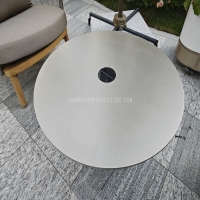Welcome to the website for landscape facilities products and knowledge.
How does the trash can’s design accommodate different waste collection route optimizations?
The design of trash cans plays a pivotal role in optimizing waste collection routes, ensuring efficiency and sustainability in urban environments. Modern trash cans are engineered with features like smart sensors, compacting mechanisms, and standardized sizes to streamline the collection process.
Smart bins equipped with fill-level sensors transmit real-time data to waste management systems, enabling dynamic route adjustments. This reduces unnecessary stops, saving fuel and time. Compacting designs increase capacity, minimizing collection frequency and optimizing truck routes.
Standardized dimensions and ergonomic shapes allow for seamless integration with automated collection vehicles, further enhancing operational efficiency. By aligning design with route optimization strategies, cities can achieve cost-effective, eco-friendly waste management solutions.
Innovative materials and modular designs also contribute to adaptability across diverse urban landscapes, ensuring compatibility with varying collection schedules and vehicle types. Ultimately, thoughtful trash can design is a cornerstone of sustainable waste management systems.
Related search:

Recommendation
Outdoor stainless steel table with solar-powered ambient lighting feature - excellent design.